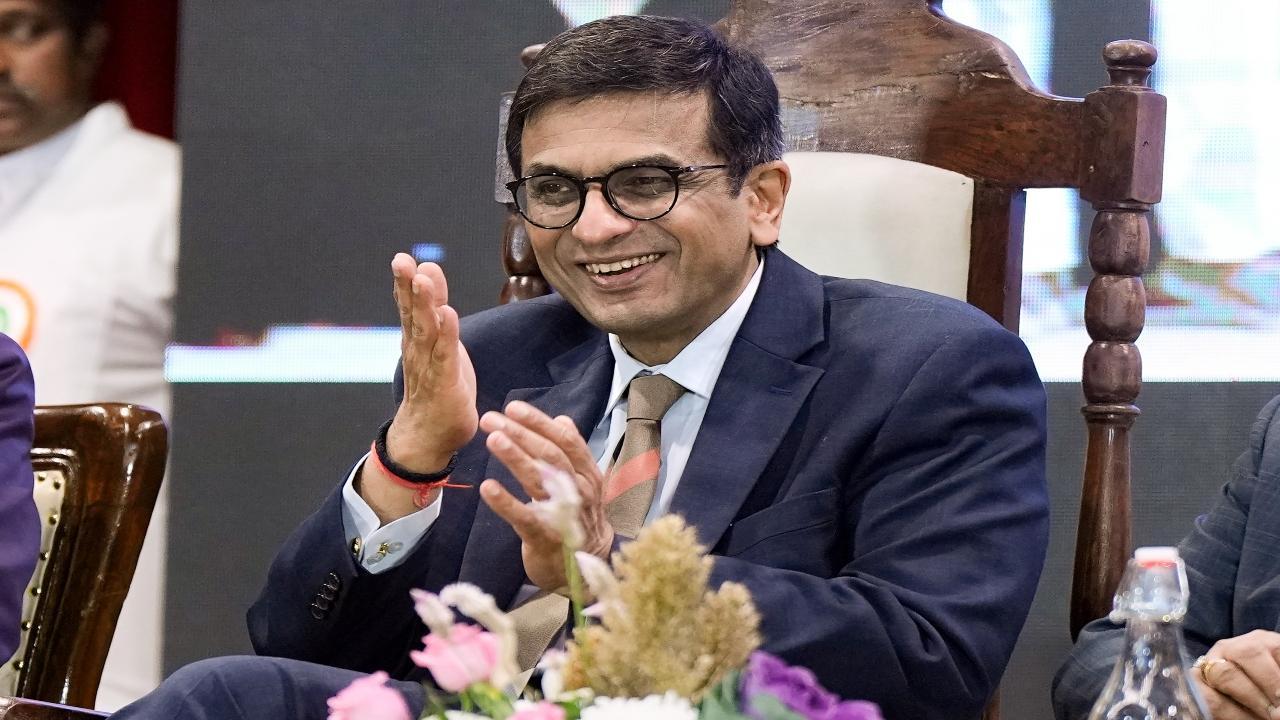Favorable conditions for judges and lawyers in Maharashtra, says CJI Chandrachud

Chief Justice of India, D Y Chandrachud, Friday emphasized the advantages enjoyed by lawyers and judges in Maharashtra, citing a culture of governance that allows the judiciary to function independently.
Speaking at the inauguration of the new premises of the Mumbai bench of the Central Administrative Tribunal (CAT), the CJI acknowledged the challenges in the national judicial landscape, including delays in appointments and a constant struggle for control over the judiciary.
Highlighting the constant tussle over the ultimate control of judge appointments, Chandrachud pointed out the prolonged vacancies and delays in appointments, questioning the necessity of the numerous tribunals in the country. He commended the culture of governance in Maharashtra, where the government respects the judiciary`s autonomy, a luxury not uniformly experienced across the nation.
The Chief Justice stressed the importance of acknowledging the government`s role in supporting judicial infrastructure, urging Mumbaikars not to overlook the significance of this support. Chandrachud also underscored the need for enhanced accessibility for differently-abled individuals in courtrooms, emphasizing that technology should complement, not replace, physical access to justice.
While recognizing the pivotal role of tribunals in alleviating court delays, the CJI highlighted the infrastructural gaps in the judiciary, citing a report that revealed a shortage of 4,051 courtrooms against a sanctioned strength of 25,081 judges in the district judiciary. He urged for a more inclusive and architecturally accommodating approach to address the challenges faced by litigants, with a particular focus on gender disparities.
Chandrachud provided examples of the gendered impact of delays on women lawyers, emphasizing the need for processes and infrastructure to be more inclusive. He shared an incident from a few years ago when he visited Kolhapur district, revealing the absence of toilet facilities for women judges, highlighting the pressing need for improvement.
Also read: Maha Dy CM Devendra Fadnavis announces stringent measures in anti-drug fight
Meanwhile, speaking at the Jamnalal Bajaj Awards function in Mumbai, Chandrachud highlighted the pervasive issue of polarization worldwide, attributing it to the proliferation of social media and growing intolerance among communities. He emphasized the unique nature of India`s post-independence journey, pointing out the country`s ability to sustain democracy and its pluralistic culture.
Chandrachud noted that the polarization observed globally, spanning the divide between right and left, as well as the center, is closely tied to the expansion of social media, the increasing sense of intolerance among communities, and the short attention span prevalent among the younger generation.
He underscored that this phenomenon is not isolated but rather a result of the influence of free markets and technology.
Reflecting on India`s “resilience in maintaining democracy”, Chandrachud questioned what sets India apart from other nations that gained independence around the same time but struggled to sustain freedom. He suggested that India`s internalization of democracy and constitutional values, along with its pluralistic culture and commitment to inclusive dialogue, played a pivotal role.
The Chief Justice acknowledged the challenges faced by those choosing a path of public service, emphasizing the importance of such service for a thriving society. He highlighted the sacrifices required and the delicate balance individuals must navigate between public duty and personal or career pursuits.
Chandrachud emphasized the judiciary`s role in addressing injustice within the boundaries of the law but acknowledged the limitations in creating a truly just society solely through legal means. He stressed the need to tap into innate goodness within individuals and communities for justice beyond the confines of the law. (With inputs from agencies)

Atul Tiwari is a seasoned journalist at Mumbai Times, specializing in city news, culture, and human-interest stories. With a knack for uncovering compelling narratives, Atul brings Mumbai’s vibrant spirit to life through his writing.





